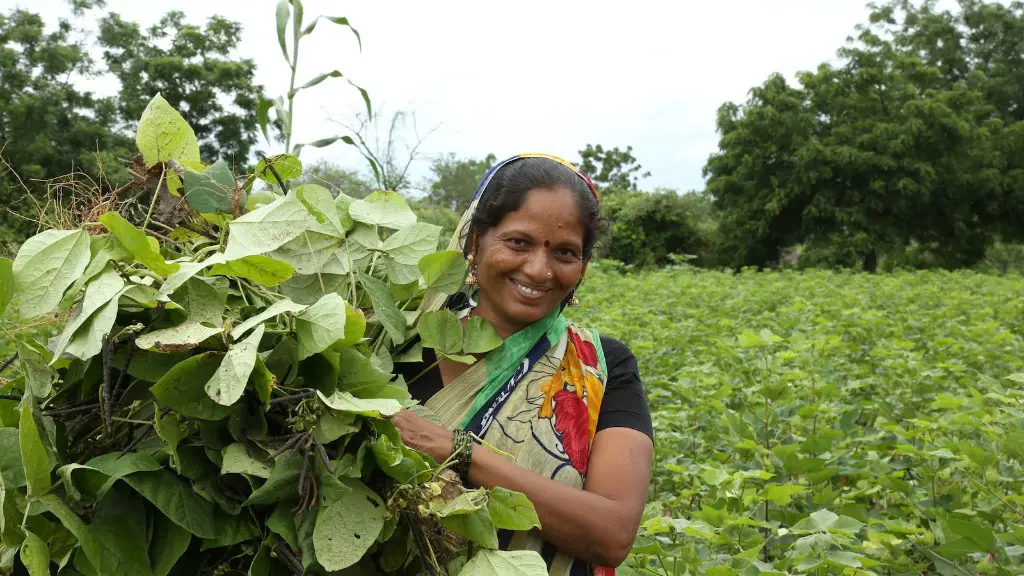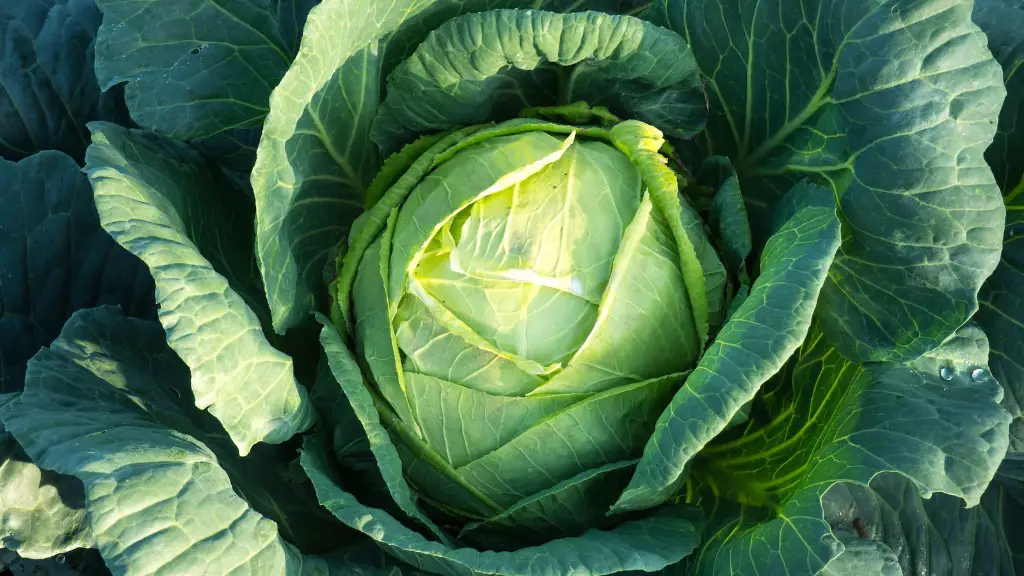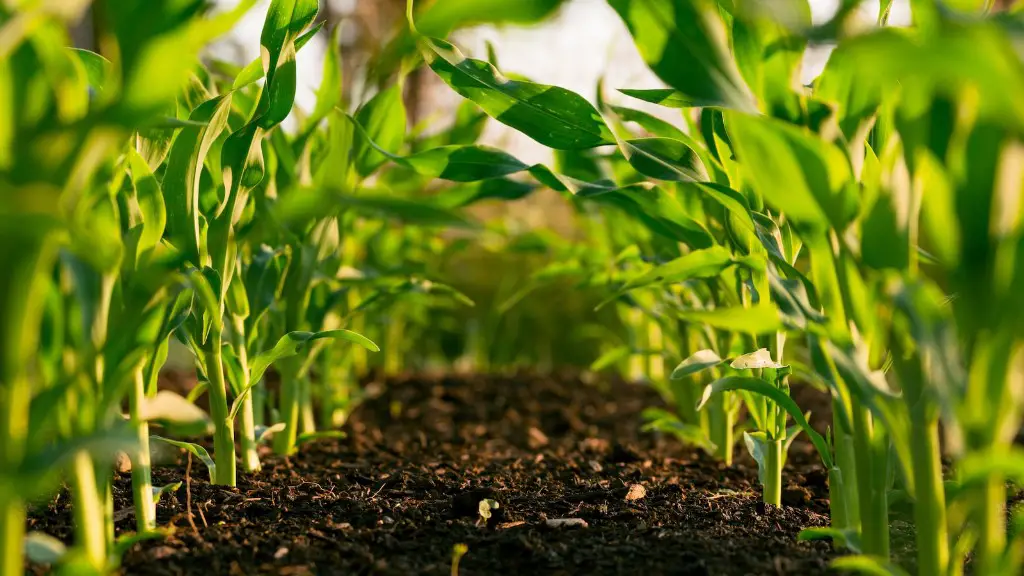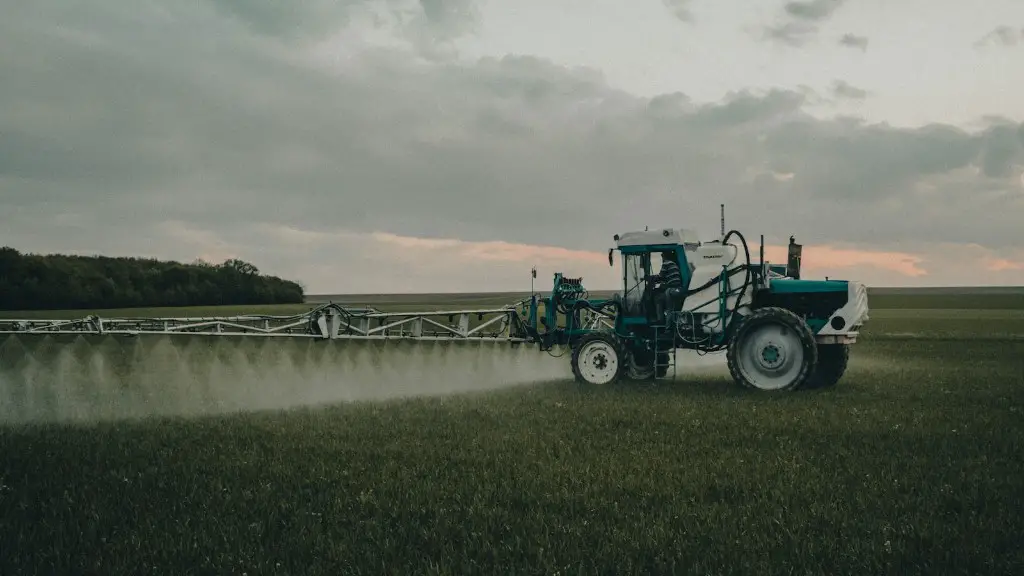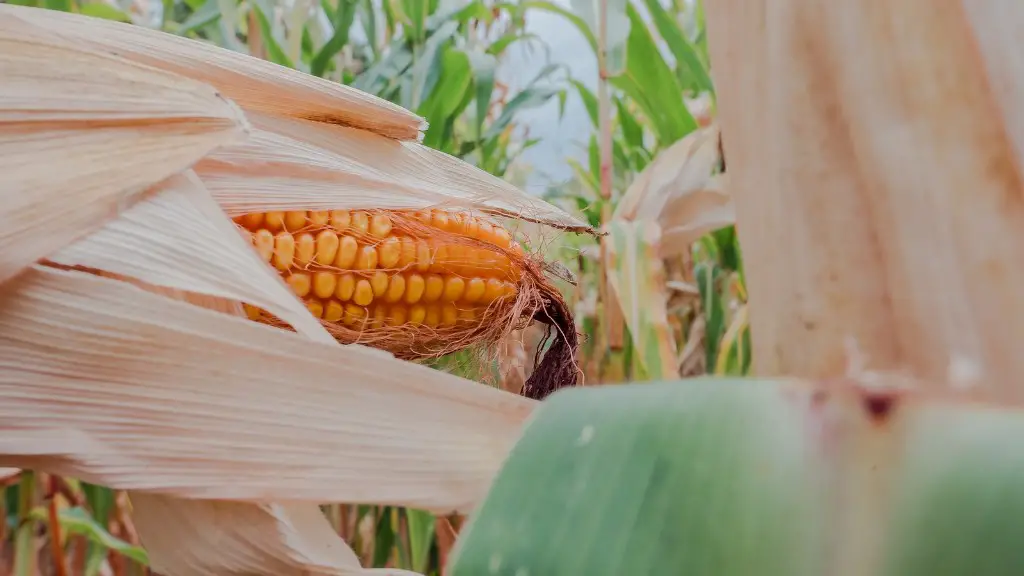Biotechnology has transformed agricultural production over the last few decades and has become a vital tool for growers and farmers to maximize their yields and ensure safe, healthy produce for consumers. Advances in biotechnology have enabled farmers to increase their production whilst reducing the amount of inputs (chemical fertilizers, pesticides and water) needed to produce the same amount of food. Biotechnology can also help create varieties of crops that can resist the effects of bad weather or pests and diseases, making them more resilient and hardy. Furthermore, genetic engineering has developed crops with enhanced nutritional value or other desirable traits – such as longer shelf life – that make them more commercially desirable. The increase in production is beneficial to both farmers and consumers, as it reduces the cost of food production and increases access to more nutritious and safe food products.
The application of biotechnology in agriculture has expanded to much more than just the genetic modification of crops for increased yield and improved properties. In recent years, biotechnology has been applied to develop new systems for efficient and environmentally-friendly production processes (including the use of recycled and renewable resources) as well as new methods for safe food storage and distribution. For example, ‘cold chain’ technology allows farmers to safely store food products with the required temperature until they are ready to be shipped to the desired market. Other new technologies, such as advanced sensors, lasers and imaging systems, help farmers increase their efficiency and optimise their operations. Thus, biotechnology offers a novel and valuable approach to enhancing agricultural production.
Biotechnology has also enabled the development of precision agriculture – a system which uses advanced information technology and analytics to manage farming resources. By utilising data collected through various sensors, farmers can detect and address localised issues in their crops, optimise their crop management practices, identify problems before they become costly, and reduce wastage. Overall, the integration of biotechnology and precision agriculture has resulted in improved yields, increased efficiency and a reduction in inputs (water, fertilisers, etc.). Thus, the application of biotechnology in precision agriculture has the potential to make farming operations more sustainable and profitable.
Biotechnology has also provided farmers with new ways to protect their crops from pests and diseases. For example, ‘biological pest control’ involves utilising beneficial organisms like predators, parasites and pathogens to reduce pest populations. This method is not only safer for the environment, but it is also more effective and sustainable than traditional pest control. Furthermore, biotechnological advances in gene editing and genomics are paving the way for the development of crop varieties that are naturally resistant to pests, diseases and drought. Such varieties could help farmers produce crops in challenging climates and reduce the input of pesticides and fertilisers.
In addition, research in the fields of biotechnology and genomics brings with it the potential to reduce the environmental impact of agricultural production practices. The use of genetic engineering has enabled the development of drought-resistant and saline-resistant crop varieties, as well as crop varieties that require fewer inputs than traditional crops. Similarly, genetic engineering has enabled the development of crops with higher nutritional value and longer shelf lives, which improves the access to healthy, safe and nutritious food. Overall, biotechnology and the application of genomics have the potential to revolutionise and improve the agricultural industry and ultimately benefit farmers, consumers and the environment.
The Impact of Biotechnolgy on Food Quality and Safety
Biotechnology has had a major impact on the quality, safety and nutritional content of food products. Genetically modified (GM) crops have been developed with improved traits like higher nutritional value, more vigorous shelf life and disease and pest resistance. For example, ‘Golden Rice’, which is enriched with Vitamin A and iron, has proven to be an effective way to address micronutrient deficiencies in developing countries. Furthermore, genomics has been applied in the food industry to develop specific processes (such as predictive analytics) that enable manufacturers to reduce the risk of contamination and foodborne illnesses. Consequently, biotechnology has played an important role in improving the safety of food products.
In addition, biotechnology can be applied to develop new food products with enhanced nutritional content, flavour or texture. For example, using genetic engineering, food producers can create products with high levels of omega-3 and other beneficial compounds, which may have a beneficial effect on human health. Similarly, the use of genomics can be used to create novel flavours and textures, which may offer consumers a more enjoyable dining experience. Thus, biotechnology is a crucial tool for the food industry, as it can help food manufacturers create more nutritious, safe and tasty products.
The application of biotechnology has also enabled food producers to reduce waste and increase efficiency. For example, the use of gene editing has enabled food producers to shorten the processes and reduce the energy costs associated with growing and processing food. Furthermore, biotechnological advances in gene therapy, gene editing and genomics can be applied to create food processing systems that are more efficient and sustainable. Thus, biotechnology offers a range of benefits to the food industry, including improved quality, safety and nutraceutical aspects, reduced wastage and improved efficiency.
Advances in Biotechnology Across Sectors of Agriculture
Biotechnology is also making advances across various other agricultural sectors, namely livestock and aquaculture. For example, via the use of gene cloning and genetic engineering, scientists have developed transgenic animals with improved traits – like increased mortality rate, fertility or disease resistance – or with superior performance in producing certain desirable proteins (such as for use in pharmaceuticals). Furthermore, gene therapy has been used to identify and treat genetic diseases in animals, which might otherwise have led to reduced productivity.
In aquatic farming, biotechnology has been applied to improve growth, feed efficiency and yield – such as via the introduction of gene-edited products like GM salmon, with enhanced disease resistance, improved growth rates and advanced farming techniques. Similarly, advances in biotechnology have enabled scientists to develop feed with enhanced nutritional content, as well as methods for chemical-free food production – such as the use of ‘food-based’ fertilisers, which are plant-based fertilisers with beneficial bacteria, macro and micronutrients.
Moreover, biotechnology has enabled the development of precision aquaculture processes, which seek to reduce the impact of farming on the environment. For example, a combination of technologies such as sensor systems, video imaging and 3D mapping can be used to track and monitor aquatic resources. Such systems help manage aquatic resources in a sustainable fashion, with minimal waste and environmental impact.
Finally, biotechnology has enabled the development of new methods for aquatic farming – such as aqua culture scale-up systems, which allow farmers to monitor, manage and scale-up their farm operations with minimal disruption and waste. Similarly, ‘aquaponic systems’ and ‘integrated aquaculture systems’ allow farmers to raise and harvest fish, plants and other organisms in one single system.
The Application of Biotechnology in Plant Breeding and Crop Selection
Biotechnology and genomics have also enabled the development of plant breeding technologies and production methods that reduce the time to market for new crop varieties. For example, advanced gene-editing technologies have enabled breeders to design unique crop varieties in shorter amounts of time, which helps increase the speed of introducing new products and varieties to the market. Additionally, gene-editing techniques enable the development of new crop varieties with specific traits, such as drought and pest resistance, improved productivity, pest tolerance or improved nutrition content.
Furthermore, advances in molecular biology and genomics have enabled scientists to identify, select, and modify specific genes in crop varieties to produce more resilient and productive varieties. For instance, ‘marker-assisted selection’ (MAS) is an important tool applied in plant breeding to identify and select desired genetic traits. MAS involves utilising a ‘marker’ (which is a sequence of DNA that can be easily identified) to determine whether or not a particular trait is present within a particular crop variety. This process allows for faster selection and development of crop varieties that have unique characteristics or traits – such as resistance to a particular pest or disease or higher yield potential.
Moreover, advances in biotechnology has enabled the development of various methods for ‘precision agriculture’ – a system wherein farmers can manage their farming operations with the help of data analytics, sensors and other technologies. By collecting data from various sources, farmers can detect and address localised issues in their crops and optimise their crop-management practices. Such systems can help farmers determine the optimum doses and timing of inputs (such as fertiliser, water, and pesticides) and swift changes in environmental conditions, to better manage their production practices.
Finally, biotechnology can be used to identify and monitor crop diseases, which is beneficial for both farmers and consumers. For instance, by using advanced ‘bio-sensors’, farmers can detect the presence of certain pathogens or deteriorating plant conditions, which can aid in the early detection of crop diseases. Similarly, genomics has facilitated the development of ‘biocontrol agents’, which are microorganisms (such as bacteria, fungi and viruses) that can reduce crop damage caused by insect pests and help farmers control pest populations and reduce their reliance on chemical pesticides.
The Role of Biotechnology in Sustainable Agriculture
Given its numerous benefits, biotechnology can play a major role in supporting agricultural sustainability. As previously mentioned, advances in precision agriculture have enabled farmers to reduce their water and pesticide inputs and manage their operations with increased efficiency. Additionally, biotechnology can be used to improve soil fertility and reduce the environmental impacts of nutrient loss, such as water and air pollution. This is especially important in low-input and organic systems, where the need for fertilisers is even higher.
Moreover, biotechnology can also play an important role in helping farmers adapt to climate change. For instance, genetic engineering has enabled the development of new crop varieties that can withstand periods of drought, salinity or flooding. Similarly, genomics and molecular biology can be used to identify and select genes that have beneficial traits – such as drought tolerance or disease resistance. Furthermore, advances in biotechnology have enabled the development of genetically modified crops that require less water, fewer inputs (fertilisers and pesticides) and produce more crop per acre.
In addition, biotechnology and genomics can be used to develop novel methods for crop production and processing, which are more efficient and sustainable. For instance, the application of ‘biorefineries’ can enable farmers to process agricultural products (such as grains and vegetable oils) into a variety of products (such as biofuels, proteins, and bulk chemicals). Thus, by helping farmers reduce their inputs and increasing the efficiency of their operations, biotechnology has the potential to enable the development of sustainable, profitable and resilient agricultural systems.
The Role of Biotechnology in Nutrition and Food Security
Biotechnology is also playing an important role in enhancing nutrition and food security around the world. As previously mentioned, the application of genomics has enabled the development of crop varieties with superior nutritional content – such as ‘Golden Rice’, which is enriched with Vitamin A and iron, and therefore helps reduce micronutrient deficiencies in developing countries. Similarly, gene-editing technology can be used to develop high-yielding and drought-tolerant root crops and fruits, which can play an important role in improving food security and reducing hunger.
In addition, advances in Genetically Modified Organisms (GMOs) have enabled the development of better-tasting and longer-lasting food products, which are able to withstand periods of extreme weather. For example, by using genetic engineering, food producers can create fruits and vegetables with enhanced nutrient content, or fruits and vegetables that have longer shelf lives – thus making them more readily available for consumption in areas of need.
Moreover, genomics and molecular biology have enabled the development of ‘fortified’ food products, which are food items enriched with extra nutrients, such as vitamins, minerals or beneficial fatty acids. Such enriched products can provide essential nutrients to populations that are at risk of micronutrient deficiencies, and thus can help reduce malnutrition and improve health outcomes. Thus, biotechnology can help increase access to affordable, safe and nutritious food, globally.
